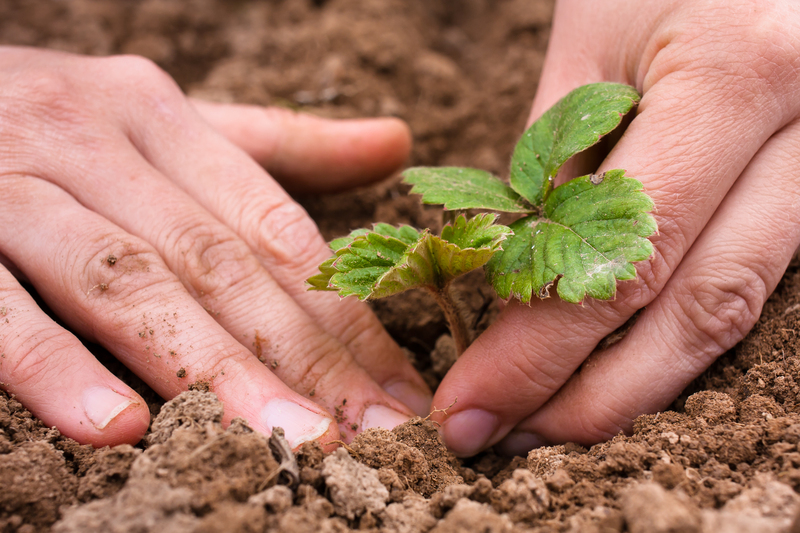Growing Veggies: The Benefits
Posted on 07/12/2024
The modern world is experiencing a resurgence in self-sustainability, and one of the most popular trends is growing vegetables at home. Cultivating your own vegetable garden offers numerous advantages, which extend beyond mere aesthetics or a sense of accomplishment. Read on to discover the myriad benefits associated with growing your own veggies.
Health Benefits of Growing Your Own Vegetables
One of the most compelling reasons to grow your own vegetables is the health benefits. Unlike store-bought produce, homegrown vegetables are free from pesticides and other chemicals that are often used in large-scale farming. Here's how homegrown vegetables can contribute to a healthier lifestyle:
- Fresher Produce: Vegetables lose nutrients over time. When you grow your own, you can harvest them at their peak ripeness, ensuring the highest nutrient content.
- Increased Nutrient Intake: Commercial farming practices can reduce the nutrient levels in the soil. By rotating crops and using organic compost, home gardeners can maintain nutrient-rich soil.
- Encourages a Healthier Diet: When you have fresh vegetables readily available, you're more likely to incorporate them into your diet, boosting your consumption of essential vitamins and minerals.
- Physical Activity: Gardening is a form of moderate exercise that can improve your overall physical health, including cardiovascular fitness, strength, and flexibility.

The Economic Benefits of Home Gardening
Growing your own vegetables can be a cost-effective solution. While the initial investment in seeds, soil, and gardening tools may seem daunting, the long-term savings outweigh the initial costs. Here are some ways you can save money by growing your own vegetables:
- Reduced Grocery Bills: Once your garden is established, you'll spend less on vegetable purchases. The savings can be substantial over the growing season.
- Less Waste: Home gardeners can harvest what they need, which reduces food waste and the cost associated with throwing away spoiled produce.
- Long-term Investment: Many vegetables can be grown from seeds saved from previous harvests, further minimizing costs in future growing seasons.
Environmental Benefits of Home Vegetable Gardening
Growing your own vegetables can significantly impact the environment in a positive way. Here's how home gardening is beneficial to the ecosystem:
- Reduced Carbon Footprint: Growing your own vegetables eliminates the need for long-distance transportation, reducing carbon emissions.
- Less Plastic Waste: Store-bought vegetables often come in plastic packaging. Harvesting from your own garden reduces the use of plastic containers and bags.
- Organic Growing: By choosing organic methods, you avoid using harmful pesticides and chemicals that can adversely affect wildlife and local waterways.
- Carbon Sequestration: Plants absorb CO2, helping to reduce greenhouse gases in the atmosphere.
Educational Benefits for Children and Adults
Gardening is an excellent way for both children and adults to learn important life skills and gain knowledge about nature, biology, and sustainability. Here are some educational benefits:
- Hands-on Learning: Gardening teaches biology and environmental science through direct interaction with the ecosystems in the garden.
- Responsibility and Patience: Caring for plants requires regular attention and patience, imparting valuable life lessons.
- STEM Skills: Gardening involves measurement, observation, and experimentation, which are core STEM activities.
- Nutrition Education: By growing vegetables, children learn about where food comes from and the importance of healthy eating.
Mental and Emotional Benefits of Gardening
Gardening isn't just good for your physical health; it's also a boon for your mental and emotional well-being. Here's how tending to a vegetable garden can improve mental health:
- Stress Relief: The act of gardening has been found to reduce stress levels significantly. The physical activity coupled with being outdoors has a calming effect.
- Mindfulness: Gardening requires attention and focus, making it a form of mindfulness practice that can help reduce anxiety and improve mood.
- Sense of Accomplishment: Seeing the fruits of your labor grow and thrive can provide a great sense of achievement and boost self-esteem.
- Connection to Nature: Being in nature and working with the earth has been shown to improve mental well-being and combat the effects of urban living.

Community Building and Social Benefits
Gardening can bring people together and strengthen community bonds. Here are some social and community benefits of home gardening:
- Community Gardens: Participating in or starting a community garden can foster relationships, cooperation, and sharing of resources among neighbors.
- Sharing Produce: Excess vegetables can be shared with friends and family, building a sense of community and generosity.
- Teaching and Learning: Gardens can become communal learning spaces where knowledge and skills are shared among community members.
Personal Satisfaction and Therapy
Gardening is often seen as a form of therapy and personal satisfaction. Individuals find joy in watching things grow and thrive, which can offer a deep sense of fulfillment. Whether you're dealing with daily stressors or long-term mental health challenges, engaging with your vegetable garden can be a therapeutic activity that provides peace and joy.
In conclusion, growing your own vegetables is a multifaceted activity that brings with it a host of benefits. From improving physical health and saving money to enhancing mental well-being and building communities, the advantages are numerous. So why not take a step towards a more sustainable, healthy, and fulfilling lifestyle by starting your own vegetable garden today?
Happy gardening!
Latest Posts
Creating a Serene Zen Garden Oasis
Perfect Mow Timing: How Often to Trim Your Lawn?



